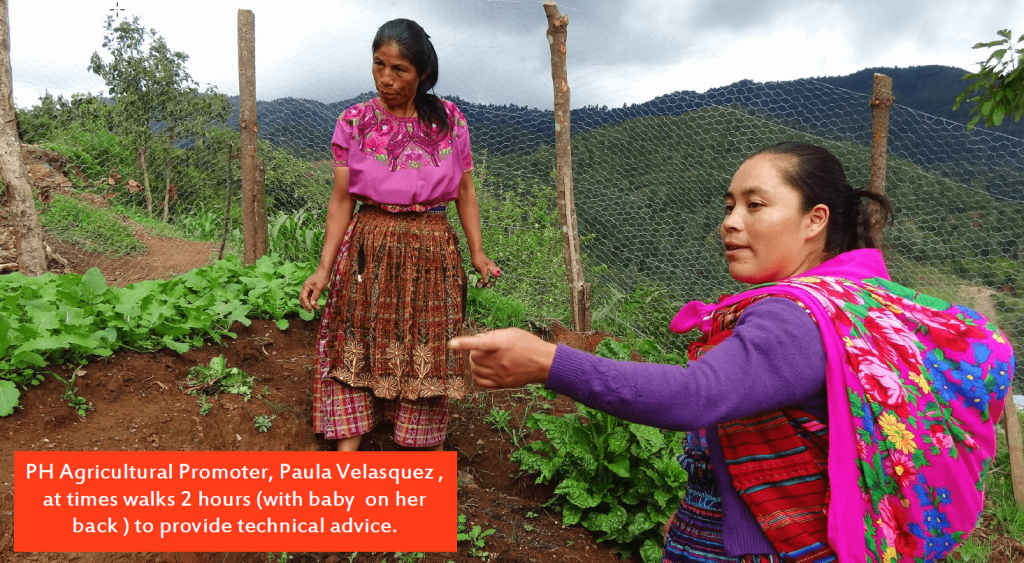Many families ask Project Harvest to implement our integrated program of food security and leadership training in their communities, but once we are on the ground, communities don’t want us to leave! So what is our exit strategy? Our entry to support andaccompany a community is linked to our exit strategy. We want communities to become independent of us and able to function on their own. The following is our strategy as it pertains to family gardens.
In the first three years, families acquire up to 80% of the knowledge and practice of managing a vegetable garden. During this period they learn how to sow and harvest vegetables more than seven times. They are provided with important supports in terms of seeds, fertilizers, and regular technical accompaniment. In these years, the presence of a PH Agricultural Promoter in the community is very important. This is when Community Guides are trained so that in the future they will take on the responsibility for accompanying the families and their gardens.
After the initial three years, there are two more years of transitional accompaniment where the community groups can augment their knowledge and skills to be able to manage their gardens independently . Technical accompaniment is maintained, but it is reduced to a minimum as the Community Guides assume a more active role.
It is important to note that in years 4 and 5, we place emphasis on supporting families to adopt practices to save their own seeds and make their own organic fertilizer. By now, there is sufficient money from the sale of surplus produce to allow the option of buying seeds.
Our Agricultural Promotors are now free to turn their attention to new groups in new communities and work with new families. However, the process of organizational strengthening and leadership formation continues. With this support, families can now act as an independent, organized force and have a better chance of success in their search to secure their family and the community wellbeing. This shift to independence ensures that families continue their work despite the absence of Project Harvest’s resources.

